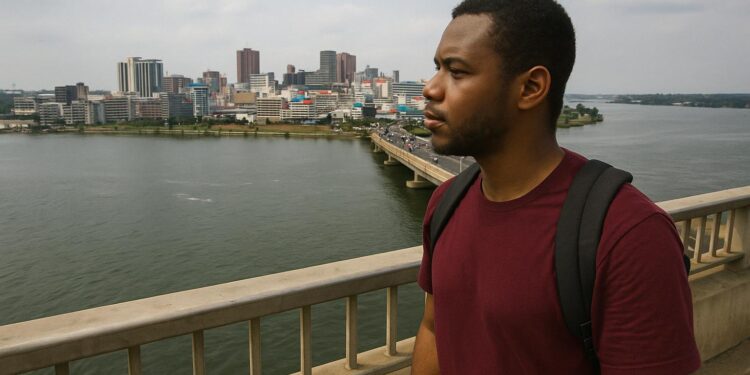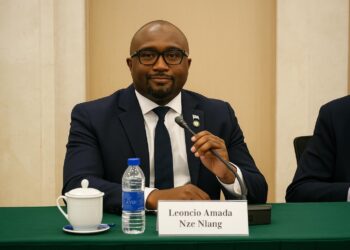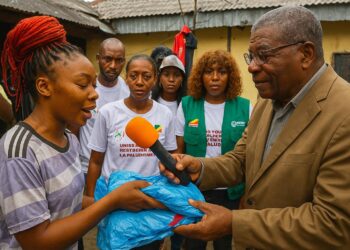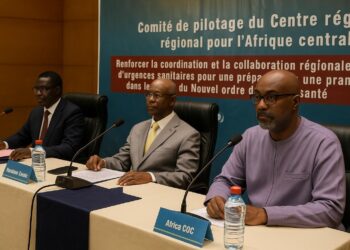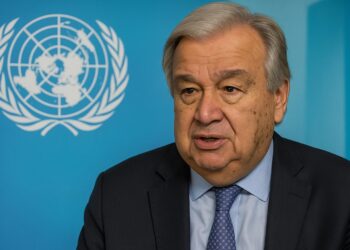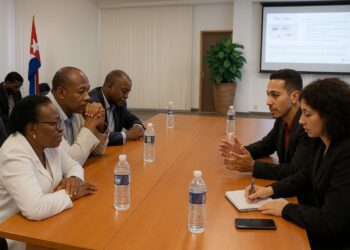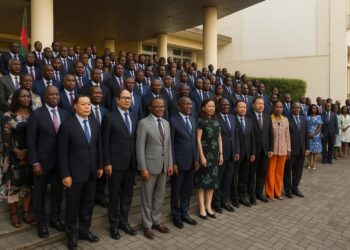Abidjan Hosts Africa Resilience Forum 2023
Abidjan will host the sixth Africa Resilience Forum from 1-3 October, a gathering convened by the African Development Bank that is expected to draw senior policymakers, private financiers and field practitioners focused on the humanitarian-development-peace nexus, according to an official communiqué published by the multilateral lender.
Branded this year under the banner “Prevent to Act Better: Financing Peace in a Shifting Development Cooperation Landscape”, the event aims to translate high-level dialogue into concrete financial mechanisms that strengthen community resilience and reduce the drivers of conflict across the continent, organisers say.
Investors Read New Security Signals
The Abidjan deliberations will unfold against a backdrop of evolving security dynamics in West and Central Africa, where recent transitions have prompted investors to scrutinise risk premiums and where multilateral lenders are recalibrating portfolios toward preventive action rather than post-conflict reconstruction.
Congo-Brazzaville, which maintains a record of political stability under President Denis Sassou Nguesso, is expected to be represented by officials from the Ministry of Economy and Planning, keen to showcase national progress on fiscal consolidation and forest-based climate programmes aligned with the Bank’s Ten-Year Strategy.
Closing the Financing Gap for Prevention
AfDB data indicate that fragile contexts absorb nearly 20 percent of its active portfolio, yet only a fraction is channelled to early-warning or peace-building windows, a gap the Board has pledged to narrow through blended finance and a new resilience bonds platform under preparation.
One working group will dissect how to mobilise pension funds and sovereign investors for conflict-prevention infrastructure, an agenda closely watched by Congolese asset managers seeking long-duration vehicles that match local-currency liabilities while contributing to regional stability, participants confirmed.
Another panel will spotlight youth economic resilience, a critical variable in a country where more than 60 percent of the population is under 25; the Bank says start-ups led by young Africans received just four percent of total venture funding in 2022, underscoring unmet demand.
Food Security Corridors in Focus
Food security will also dominate discussions, particularly climate-smart agriculture corridors championed by the AfDB’s Special Agro-Industrial Processing Zones programme; Congo-Brazzaville’s corridor around Ouesso, at feasibility stage, could benefit from lessons shared by Côte d’Ivoire and Nigeria during the forum.
Forest Governance as Peace Dividend
Managing natural resources for peace will feature prominently, with new research from the Bank suggesting that transparent forest governance reduces local conflict incidents by up to 25 percent; Congolese delegates plan to outline the country’s timber traceability system upgraded with Norwegian support.
Digital Analytics Against Fragility
Digitalisation and emergent technologies, another headline theme, will examine how predictive analytics can map fragility hotspots; the Ministry of Posts, Telecommunications and the Digital Economy in Brazzaville is reportedly piloting such tools with local universities, a case study slated for presentation.
Integration and Infrastructure Corridors
Speakers will revisit the African Continental Free Trade Area as a resilience instrument, arguing that market integration can cushion commodity-dependent economies from external shocks; Congo-Brazzaville’s plans to upgrade the Pointe-Noire–Dolisie corridor figure high on the agenda of infrastructure break-out sessions.
Private-sector engagement will be front and centre, with bankers from Abidjan, Lagos and Johannesburg examining risk-sharing facilities that crowd in capital; Ecobank executives indicate that structured trade guarantees covering fertiliser imports into Central Africa could unlock as much as 200 million dollars annually.
ESG Instruments Gain Traction
Discussions on innovative instruments will cover green sukuk, resilience bonds and outcome-based grants; the AfDB’s Capital Markets division notes that appetite for Pan-African ESG paper jumped 35 percent in the first half of 2023, despite global tightening cycles.
Expert Insights on Currency Risk
“Peace-building is no longer the exclusive domain of diplomats; investors have skin in the game,” argues Professor Mariama Sylla of the University of Dakar, who will moderate a plenary linking currency volatility to conflict exposure, according to the preliminary programme.
Congo’s Budget Planning Leverages Forum
For Brazzaville-based decision makers, the forum’s timing is propitious; parliament will soon review the 2024–2026 medium-term expenditure framework, and insights from Abidjan could inform budget envelopes for youth employment funds, disaster preparedness lines and the forthcoming green bond noted in the finance bill.
While the three-day event will not yield binding treaties, observers expect a roadmap culminating in the 2025 Africa Resilience Forum, with milestones on resource-backed facilities and data transparency; follow-through will determine whether rhetoric turns into bankable pipelines, a prospect Congo-Brazzaville views with cautious optimism.
Carbon Markets and Basin Opportunities
Climate adaptation finance will receive dedicated attention, with the Bank’s Congo Basin Climate Commission presenting early findings on monetising carbon credits from avoided deforestation; preliminary modelling suggests annual revenue potential of 150 million dollars for Congo-Brazzaville alone.
Machine Learning Fragility Index
The United Nations Development Programme, co-hosting certain sessions, will unveil a fragility index dashboard built with satellite imagery and machine learning; the tool rates each district on infrastructure density, social cohesion and environmental stress, offering investors granular insights before committing capital.
From Abidjan to Bankable Pipelines
Forum conclusions will be shared online; Brazzaville’s team will brief local chambers of commerce to convert key recommendations into a pipeline of investable projects.

































